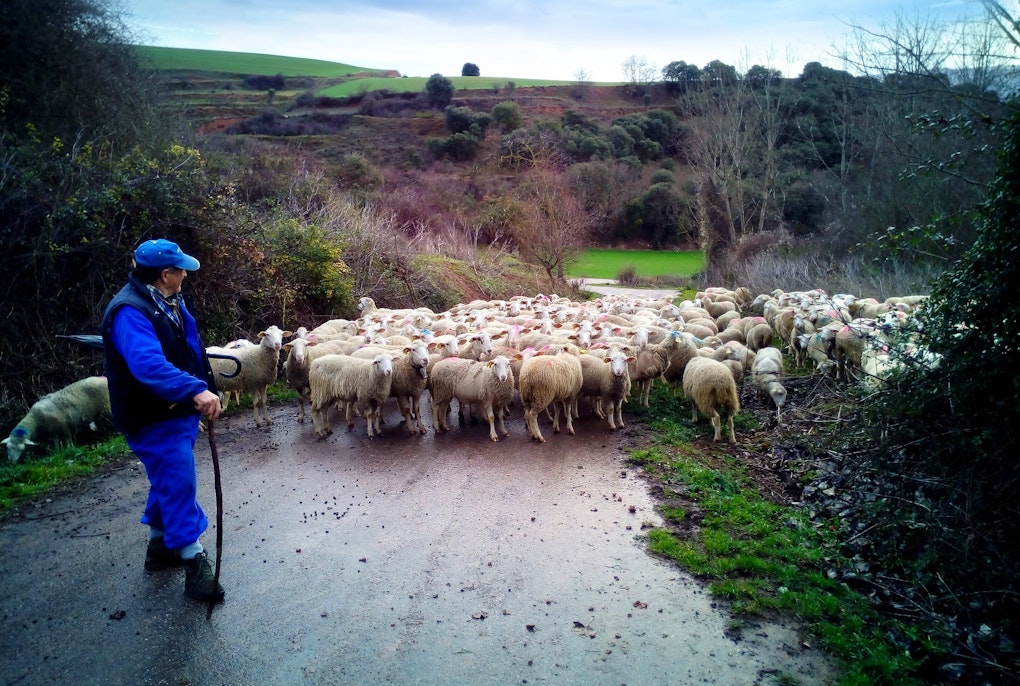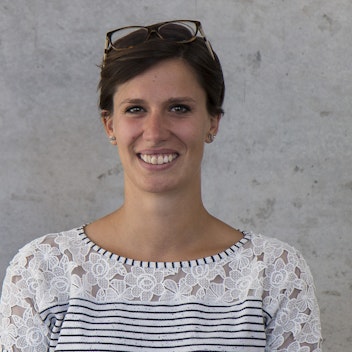
Why Alpine Food Needs Quality Terms
 Marie Clotteau
Marie Clotteau
Farm holidays have become increasingly popular in recent decades. Holidaymakers appreciate being in contact with nature, they enjoy farm-produced goods and being close to the families who run the farms. In the Italian province South Tyrol, the number of overnight stays in agritourism destinations has significantly increased. Nowhere else in the world is the number of farms offering agritourism retreats higher than here. Much of this success can attributed to the umbrella brand “Roter Hahn” (German for “Red Rooster”), which now counts over 1,600 holiday farms among its members. How did this form of tourism become so popular?
In preparation for the upcoming World Congress on Agritourism “2nd World Agritourism Congress – Agritourism is more!”, which for the second time will take place at Eurac Resesarch’s headquarters in Bolzano between May 16-18, 2024, I had the opportunity to meet Hans J. Kienzl. He is the head of marketing at the South Tyrolean Farmers’ Association and played an important role in creating the “Roter Hahn” umbrella brand. In this interview, he shares his thoughts on the challenges and opportunities agritourism faces, the significance of the World Congress for the industry, and his personal expectations and hopes for this event.
It’s impossible to overlook Roter Hahn’s emblematic red rooster logo as it is virtually on all produce and goods that is produced in South Tyrol. What is the Roter Hahn? Why do South Tyrolean farm holidays even need an umbrella brand?
The Roter Hahn has been created over 20 years ago and has been evolving ever since. First, it was simply a logo, but now it is an established brand. Nowadays, when people are looking at it, they get a clear image, an association between our brand and the values it represents certain values. We see Roter Hahn as a promise to our guests. We aim to bring people closer to rural life. Every pillar of the brand is subject to this promise. Farms who cannot fulfil this promise cannot become part of our association. What it stands for is our farmers’ traditional ways of life and their values. Our guests can grasp and taste these values by buying honey, jam, or pickled vegetables right on the farm, or by attending traditional cooking classes. This authenticity is deeply rooted in our brand and each of our members embodies it, regardless of the product group they offer. We expect them to internalize and convey these values to the outside world.
Which achievement of Roter Hahn are you particularly proud of?
It is wonderful to see that we have succeeded in making the brand well known and desirable to our guests. It also makes us proud to see that we have succeeded in getting so many farmers in South Tyrol to believe in the brand and become part of it and the promise of authenticity and tradition it represents. It’s truly heartening to witness how our brand has empowered farmers to establish a secondary source of income, while it enables them to sustainably earn a livelihood directly from their agricultural endeavors.
What would you like to achieve next with Roter Hahn?
First of all, our aim is to make the brand well-known and desirable for both our guests and the farmers that are part of it. Of course, we want our farmers to be proud of being part of the brand. But our overarching objective remains to authentically embody the essence of the South Tyrolean way of life. It would be fatal for the brand to lose its unique selling point and not be as desirable as it is anymore. That is why we need to avoid that »Roter Hahn« becomes just like any other accommodation facility or good produced in South Tyrol. So it is important that we manage to keep this promise and that we continue to market our excellent products to the outside world. Currently, that is working out very well, but we must be careful. I believe our farmers sometimes think: “Why do I have to keep animals on the farm? Why do I have to run the farm? It would be easier to just provide the touristic branch.” That would be dangerous, because it would risk losing part of our authenticity. That is a risk our brand cannot take.
What do we know about the typical holidaymakers who choose agritourism?
In the last 20 years, the demographics of our typical guest has changed a lot. Some 25 years ago the typical agritourism holidaymaker did not want to spend their money on a different type of vacation or couldn’t afford it. Today, most of our guests belong to the middle or upper class, and they are primarily looking for a worry-free vacation on the farm. They want to dive deep into the farm life and to exchange ideas with the farmers. They appreciate our hospitality, and they love being treated as member of the family. What they really appreciate is the peace and quiet on the farm, something they struggle to find in other structures. We also host celebrities who often just want to vacation in privacy. They tell us they don’t want to dress up during the whole vacation. Instead, they like a place where they can wear comfortable clothes and just relax with their families. The typical agritourism vacationer doesn’t want to be on a specific schedule as the would be in a regular hotel.
 Photo: Andrea Omizzolo | All rights reserved
Photo: Andrea Omizzolo | All rights reservedWhich exciting aspects will you present during the World Agritourism Congress, and what do you hope to learn from the event?
I want to emphasize that advertising alone will not be enough, no matter whether your agritourism destination is in South Africa, Japan, South America, North America, Germany or Austria. I firmly believe that we must optimize agritourism and make it attractive. Then we need to adjust our communication strategies and prices accordingly. The most important thing is that every person involved in farm holidays focuses on the product first. How should the product »farm holiday« look in different parts of the world to be attractive? This is why we want to find a common denominator at this conference. We want to excite guests in Tokyo as much as those in New Delhi or Johannesburg about this form of tourism. That is crucial. I am sure I will learn a lot at the congress, as I always do when I travel. Every year, I visit agritourism destinations somewhere in Europe, and I have always learnt a lot. Every new experience and encounter provide important insights, whether they come immediately or after some time.
What will farm owners learn from the World Agritourism Congress?
I our farm owners can learn the most from the plenary sessions where they get to know how other agritourism destination are run across the world. I think that is something that generates interest, that inspires and that brings ideas. I think that although farmers may not be in touch with research questions very often, they can still gain valuable insights. We know our farmers are very curious about the experiences of their colleagues in places as South Africa, Tokyo or Vancouver. That aspect is intriguing and fosters a sense of connection and empathy with their situation. They can relate to their colleagues across the pond.
This year’s title of the World Agritourism Congress is ‘Agritourism is more…’ in the sense of sustainability and resilience. What does more mean for you?
Every year, I spend two or three weeks vacationing on a farm, so I know exactly what more means to me. More and more guests worldwide have the innate desire, when they spend their vacation somewhere, to deeply connect with the local environment. They want to engage with the local population, taste products right on the farm, where they are made. Is there any better way than doing this on a farm? Here, you have people on-site who embody this our culture and tradition. They are the ones who know every single detail better than anyone else. They can point your to the best products and unique flavors. You can become a part of this new environment, at least for a while, which is particularly attractive to city dwellers. Can you imagine a better vacation than that?
Remark by the author: A special thanks also goes to our intern Raffaella Mena for her contribution to the transcription and trasnlation process.


This content is licensed under a Creative Commons Attribution 4.0 International license.